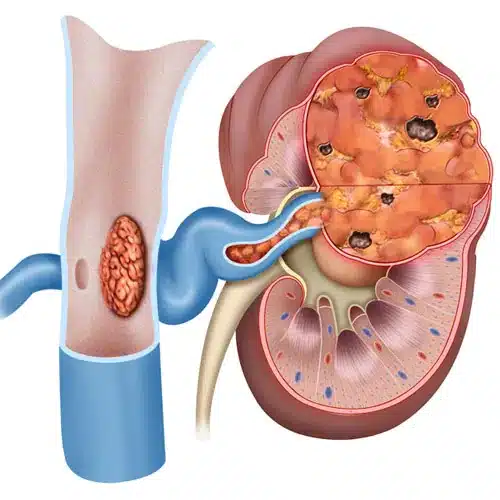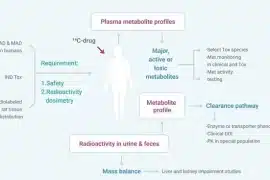Kidney cancer, although relatively rare, can become a significant health concern when not detected early. The symptoms of kidney cancer can vary, and recognizing late-stage signs is crucial for early intervention and effective treatment. In this article, you’ll delve into the advanced symptoms of kidney cancer to help you understand when it’s time to seek medical attention.
Be in the Know
Before you explore the late-stage indications, it’s essential to have a basic understanding of kidney cancer. Kidney cancer, medically referred to as renal cell carcinoma, begins within the kidney’s cellular structure. The kidneys on each side of the spine play a vital role in filtering waste and excess fluids from the blood to form urine.
Common Early Symptoms
In its early stages, renal cancer may not cause any noticeable signs. However, as the disease progresses, you may experience the following common kidney cancer symptoms as early signs:

1. Blood in Urine (Hematuria): One of the hallmark signs of renal cancer is hematuria, which means blood in the urine. This can range from a pinkish tinge to a deep red color.
2. Back Pain: It can cause persistent back pain, typically below the ribs on one side of the body. This pain may feel dull and constant or sharp and intermittent.
Advanced Symptoms
Late-stage renal cancer can manifest in more severe and noticeable indications. It’s crucial to be aware of these signs to catch the disease in its advanced stages:
Unintended Weight Loss: Rapid and unexplained weight loss can be a late-stage symptom of renal cancer. This often occurs as the cancer spreads to other body parts, affecting your appetite and overall health.
Fatigue can lead to severe fatigue and weakness due to anemia or the body’s response to the disease.
Swelling or Lumps: Advanced renal cancer may cause visible swelling or lumps in the abdomen or the affected side of the body. This can result from the tumor growing larger or spreading to nearby tissues.
Loss of Appetite: A significant loss of appetite and a feeling of fullness even after consuming a small amount of food can signal advanced renal cancer.
Persistent Pain: Late-stage renal cancer can intensify back or side pain, which may become excruciating and unrelenting.
High Blood Pressure (Hypertension): Some individuals with advanced renal cancer may develop high blood pressure, often due to the tumor’s impact on blood flow and kidney function.
Palpable Mass: In some cases, you may feel a palpable mass or lump in the area where the kidney tumor is located.
Bone Pain: Advanced renal cancer can spread to the bones, leading to bone pain, particularly in the back or legs. This pain can be persistent and may worsen over time.
Shortness of Breath: As it progresses, it can affect the lungs, causing signs such as shortness of breath, coughing, or chest discomfort.
Neurological Symptoms: In rare cases, advanced indications Can potentially extend to the brain or spinal cord, leading to neurological manifestations like headaches, seizures, or changes in mental function.
Swollen Legs and Ankles: It can impact kidney function, leading to fluid retention and swelling in the legs and ankles, a condition known as edema.
Conclusion
While the symptoms of renal cancer in its advanced stages can be concerning, it’s important to remember that early detection and treatment offer the best chance for a positive outcome. If you or someone you know experiences any of these late-stage symptoms, seeking prompt medical attention is crucial.
The treatment options continue to advance, providing hope for those diagnosed with the disease. Remember, recognizing late-stage signs and seeking medical care can make a significant difference in your journey toward recovery.







